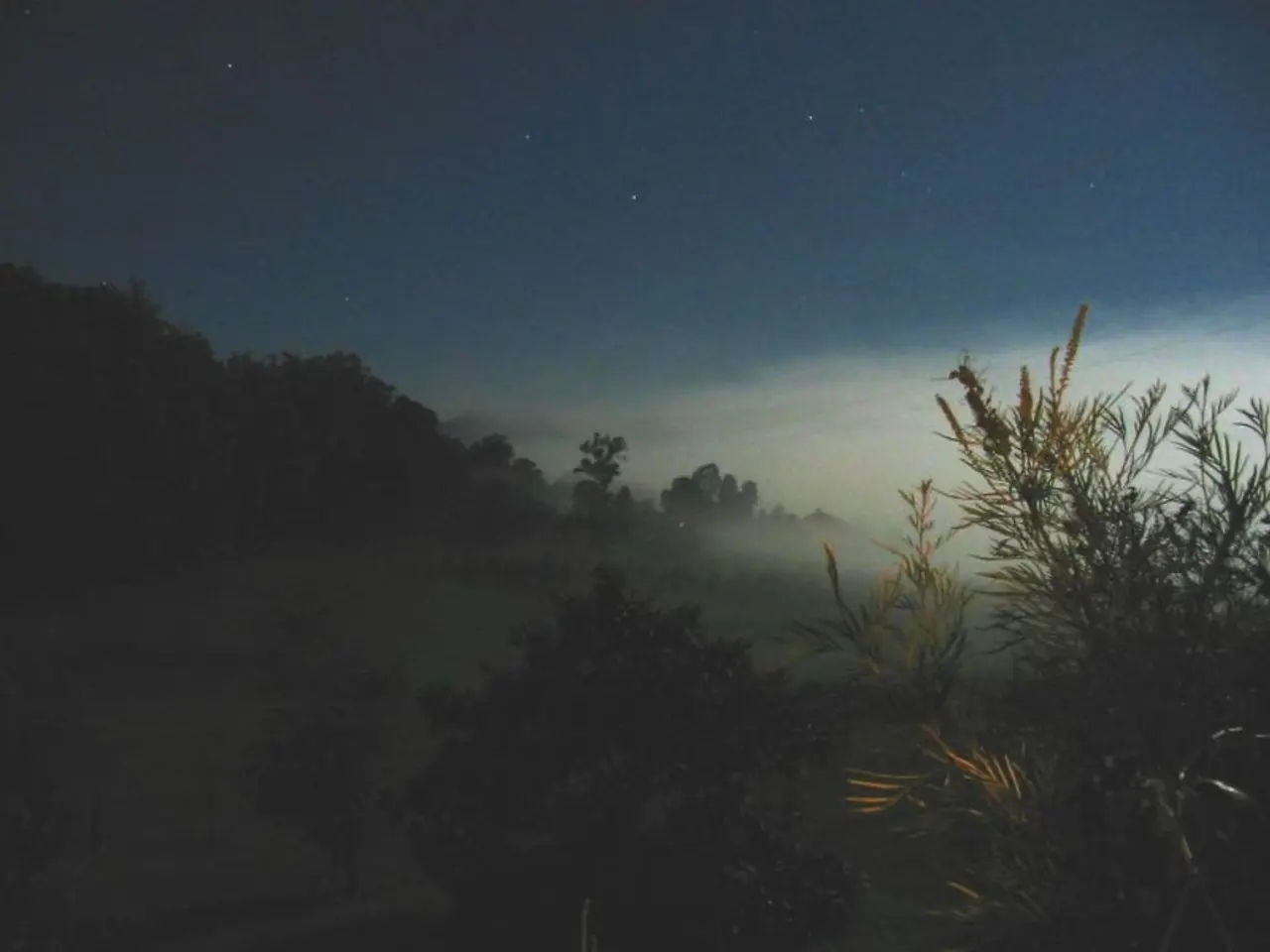Northern illumination, a spectacular natural light show, known as the northern lights, is expected to persist until August 12 for Russian viewers.
The upcoming weekend is set to bring a significant geomagnetic storm, according to leading meteorologist Mikhail Leus of the "Fobos" center. This storm, classified as G2, is the second level of five on the intensity scale and is expected to last until August 12.
The storm is comparable in strength to the one recorded in mid-June and is significant as it is the most significant in the last two months. This solar activity has caused disturbances that reached Earth around 7:00 AM Moscow time. The disturbances were caused by a stream of solar plasma.
During G2 geomagnetic disturbances, people may experience various physical and emotional symptoms. Headaches, dizziness, weakness, fatigue, irritability, anxiety, poor sleep, and decreased concentration are common, especially in vulnerable populations such as individuals with cardiovascular diseases, chronic headaches or migraines, the elderly, children and teenagers undergoing hormonal changes, and pregnant women.
Those most sensitive should take precautions to reduce negative effects during such storms. Recommended measures include avoiding physical and emotional overload, drinking 1.5 to 2 liters of water daily, reducing caffeine and alcohol intake, eating balanced meals, ensuring sufficient rest and sleep (at least 7 hours), limiting screen time in the evening, engaging in light physical activities like walking or stretching, keeping living spaces well-ventilated, and seeking medical consultation if symptoms worsen.
This geomagnetic storm also presents a rare opportunity for Russian residents to witness the Northern Lights. The Northern Lights can be witnessed even at latitudes up to 60 degrees. Astronomers recommend keeping updated for the celestial spectacle.
The forecast for these geomagnetic disturbances was made by various astronomers, including Alexander Kiselev. Kiselev, a renowned astronomer and science popularizer, encourages everyone to stay informed and enjoy the potential sight of the Northern Lights.
In summary, during G2 geomagnetic storms, headaches, dizziness, fatigue, and malaise are common, especially in vulnerable populations. Managing lifestyle factors can help mitigate these symptoms. If symptoms intensify or persist, medical advice should be sought. Enjoy the upcoming celestial show responsibly!
- The geomagnetic storm, expected to last until August 12, is significant for health-and-wellness as it may cause various physical and emotional symptoms, such as headaches, dizziness, weakness, fatigue, irritability, anxiety, poor sleep, and decreased concentration, especially in vulnerable populations.
- For those who are interested, this G2 geomagnetic storm also presents a rare opportunity for Russian residents to witness the Northern Lights, a celestial spectacle typically visible even at latitudes up to 60 degrees, recommended by astronomers like Alexander Kiselev.




